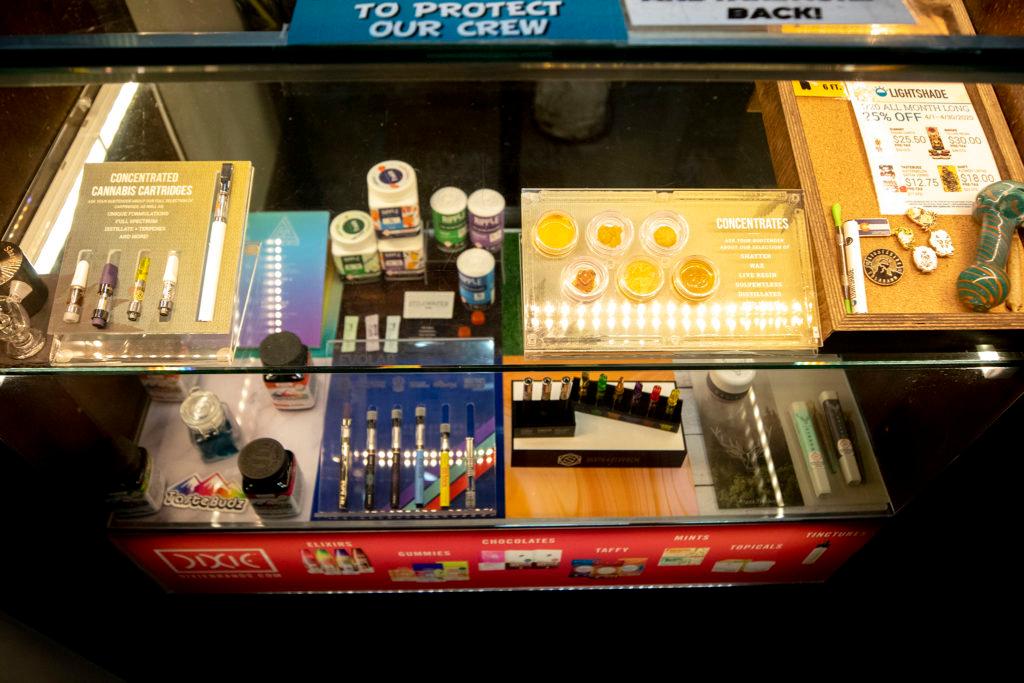
Update: HB21-1317 passed its first committee on Tuesday, May 18, with a unanimous vote from lawmakers. The sponsors added one amendment to clarify that medical users who obtain their card before the age of 18 would not be subject to age-based provisions of the bill. It also exempts medical users who are homebound or live a long way from a dispensary from daily purchasing limits. Our original story continues below.
Colorado’s Democratic House Speaker has introduced legislation aimed at preventing teens from getting access to highly potent marijuana products.
House bill 1317 would limit the amount of medical marijuana concentrate products 18-20 year olds can purchase in a single day to 2 grams, down from the current limit of 40 grams. Patients older than 21 would be limited to 8 grams per day. The bill would also create a statewide tracking system for medical users to make sure people don’t do an end run around those limits by purchasing from different dispensaries, a practice known as “looping.”
“We think (looping) is leading to diversion and leading to a high amount of marijuana concentrates on high school campuses and within high school circles,” said Speaker Alec Garnett. “I certainly think that the weed of today is very different from the weed we had of yesteryear. And I think this is one way of making sure that nobody is purchasing over the daily allotment.”
Recreational buyers would not be similarly tracked.
Many concentrated products have upwards of 80 percent THC, the psychoactive component of cannabis. Health officials say there is moderate to strong evidence of an association between using high THC products and psychotic episodes, but a causal link has not been established.
What the legislation does — and doesn’t — do
The legislation doesn’t go as far as some advocates for limitations on high-THC concentrates want. But it would change how they’re sold. It would require manufacturers to package solid concentrates — they would need to be separated into servings of no more than 1/10th of a gram and packaged separately. Liquid concentrates would not be affected.
The packaging requirement is already raising opposition in the cannabis industry, with some producers arguing it would increase packaging costs, and environmental waste. And others note that many customers already take less than that dosage.
The measure would also create more stringent rules for how 18-20 year olds obtain a medical marijuana card. Patients would be required to meet with a physician in person and get written consent from two doctors from different practices. The physician could not write a prescription if it didn’t fit within their scope of practice. And patients would need to evaluate the continued need for a medical card with their physicians every 6 months instead of annually.
“Our big goal is to formalize that relationship between the patient and the doctor a little bit more than it has been,” said Democratic Rep. Yadira Caraveo, another main sponsor of the bill. She’s a pediatrician and the legislature’s only medical doctor. “There’s standards of practice in every other area of medicine. We're treating this substance as medicine, and so we want to make sure that doctors are really kind of following a set of recommendations that they can make to patients when they use these substances.”
Garnett had originally hoped to include a tax increase on cannabis sales in the bill, to fund research on the effects of concentrates on mental health. But advocates for new limits on concentrates didn’t like the idea of tying research to money from the industry.
The bill does ask the Colorado School of Public Health to report back to the legislature on research gaps by next summer, and it would fund two additional years of research for the school of public health to conduct its own scientific studies on high potency products.
What the opposition is saying
The measure would also require coroners to start collecting toxicity reports on all victims of unnatural death who are 24 years old and under, including those who die by suicide, to assess the presence of THC in their systems.
“Especially in these younger individuals because those reports don't exist at this time,” said Caraveo. “So how much of a correlation is there between these substances and when there are non-accidental deaths?”
That provision already has some strong opposition.
“To force data collection around THC presence in every non-natural death in Colorado — which includes homicides – is wholly irresponsible and allows for gross abuse of data to be weaponized against communities of color,” said Hashim Coates, the Executive Director of BBRB, a coalition of licensed Black and Brown marijuana business owners.
“Unfortunately, the presence of drugs in a black man’s system will always be used to justify their deaths.”
But other provisions of the bill do have industry support, including capping purchases for young medical users and better tracking and research.
"We have been at the table for months to produce a balanced policy measure, and we very much appreciate that the conversation has shifted to a more evidence-based approach to cannabis regulation,” said a statement from two industry organizations, Colorado Leads and the Marijuana Industry Group. “The cannabis industry has always supported youth prevention efforts and strict regulations that keep marijuana out of the hands of teenagers.”
On the other side, some advocates for stricter marijauana laws had hoped to see a bill this session to cap the THC levels in all products, which the industry strongly opposed. Currently Vermont is the only state that caps THC. But they hailed Garnett’s bill as a first step.
“We’re really happy with the bill, especially with the provisions outlining research and the regulatory recommendations on the impact of high THC,” said Dawn Reinfeld, executive director of the progressive group Blue Rising Together. “I’m optimistic the science will show the clear and dramatic harms caused by high THC and that the state will act to protect the public health and consumers.”
The legislature must end in less than a month, which means the bill will need to move quickly if it’s going to make it all the way through the capitol.
- Your Money Is Good Here: Colorado Retailers Must Soon Accept Your Cash As Payment, Or Face A Penalty
- Colorado Democrats Say The Pandemic Laid Bare The Inequities Faced By Undocumented Immigrants. Now They Want To Fix Them
- After Facing Numerous Recall Attempts, Democratic Lawmakers Want To Change Rules
- Colorado Could Get A ‘Public Option.’ How’s That Working For The Only Other State To Try It?









